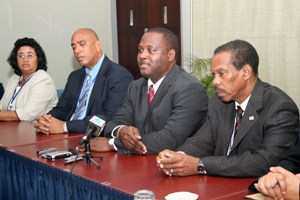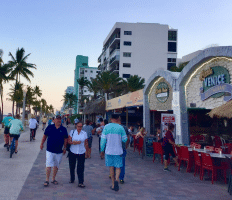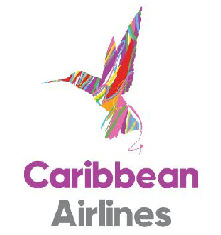Protocols For Handling Illness Aboard Cruise Vessels Arriving In The Caribbean To Be Developed
By Joy-Ann Gill
BRIDGETOWN, Barbados – Over the next few weeks, Ministers of Tourism and Health, within CARICOM, will be working assiduously to devise protocols and other guidelines “for the handling of cruise ships, in the Caribbean who experience some challenges, with respect to the health of passengers and crew.”
This decision was made recently following a meeting at the Lloyd Erskine Sandiford Centre, between senior health and tourism officials from the region and their respective Ministers.
Barbados’ Health Minister, Donville Inniss, noted that the session came about as a result of the cruise liner, Adventure of the Seas, being allowed entry into some ports, including Barbados’ but denied entry elsewhere due to suspected cases of Influenza A H1N1.
He explained that the Florida Caribbean Cruise Association (FCCA), contacted the Ministers of Tourism who were attending the Caribbean Tourism Organisation (CTO) meetings in the US and raised concerns about the inconsistency in handling the issue.
“Needless to say, we as Ministers both of health and tourism, became a bit troubled too with respect to the inconsistencies of these matters and after consultation, with Barbados’ Tourism Minister Richard Sealy on the weekend we thought that we should convene a meeting in the shortest possible time frame to have these matters thrashed out,” said Minister Inniss.
According to him, delegates agreed that there was a need for clear guidelines and protocols for tackling such issues. He further indicated that the CARICOM Secretariat, in conjunction with the Pan-American Health Organisation (PAHO) would quickly convene a caucus of Chief Medical Officers and other senior health officials to collaborate on devising the necessary regulations.

Barbados’ Minister of Health, Donville Inniss, addressing the media on plans agreed upon by Ministers of Health and Tourism within CARICOM on the issue of managing illness aboard cruise liners. Also present are (from left) Chief Medical Officer, Dr. Joy St. John; St. Lucia’s Minister of Health, Keith Mondesir and at far right Assistant Secretary-General of the CARICOM Secretariat., Edward Greene.
He acknowledged that this situation could present major economic challenges for countries in the region if the wrong decisions were taken. He said, “We recognise the importance of [the] cruise tourism industry to all of our economies in the Caribbean. It is no use one island taking a decision to allow a ship in and another taking one [not doing so]…no cruise ship is going to come to Barbados alone because it would not make economic sense to them so there is clearly a need for consistency and clarity.”
The protocols, that will be developed, are expected to be guided by the International Health Regulations (2005), established by the World Health Organisation (WHO) as well as other protocols. However, according to Minister Inniss, there is the acknowledgment that still other protocols would have to be developed and enunciated for handling Influenza A H1N1, in particular, since that virus is somewhat unique.
According to Barbados’ Health Minister, the officials accepted that this would be based on consultations between health, port and tourism officials, who would in turn give advice to their Prime Minister. This, it was noted, would ensure the involvement of a reasonably wide cross-section of stakeholders in the decision process.
Mr. Inniss also revealed that, in relation to the FCCA, tourism ministers would facilitate a consultation with health officials and the cruise sector, in a few weeks’ time. He stressed that this would not be a formal “sit down meeting’, but would provide “the opportunity for cruise ships to expose our health officials in the region to their own protocols and… standards of dealing with health issues on board their vessels”.
“We do not want a disconnect between what the ships are saying and what they are doing and what our health officials are saying and what they are doing. So, we certainly have agreed today that the tourism officials, through the CTO, will facilitate that meeting quickly,” he asserted.
The Health Minister gave the assurance, on behalf of his regional counterparts, that the health of citizens would not be secondary to the economic benefits to be derived from tourism, or any other sector.
The high-level meeting was attended by a number of delegates who were in Barbados for the two-day Commonwealth Business Council-CARICOM Ministers’ Summit at the Lloyd Erskine Sandiford Centre including Dr. Edward Greene, chair of the Health Programme for CARICOM; Dr. Bernadette Theodore-Ghandi, Caribbean Programme Coordinator of PAHO/CPC; and Ministers for Health and Tourism from St. Lucia, Grenada and Turks & Caicos.




